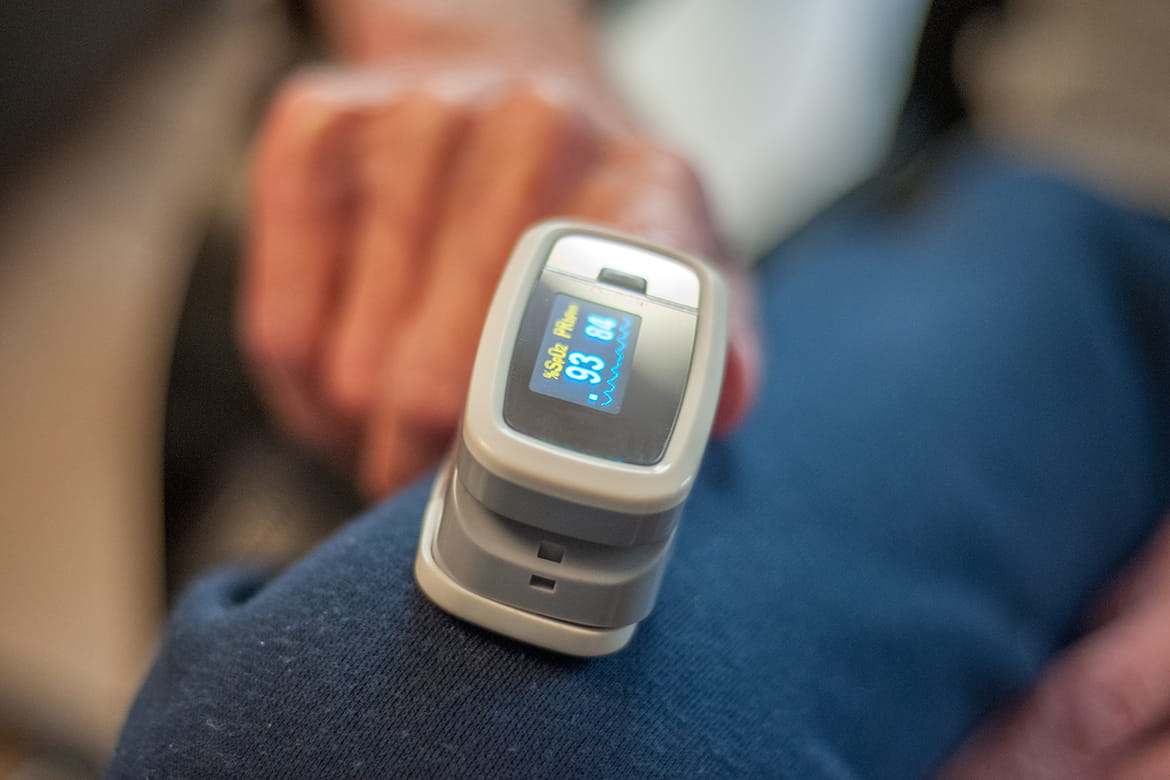Oxygen level under 88%, in any case, is dangerous for vital organs. Around 80%, the organs gradually start to shut down. Before the patient experience that stage, he/she should be rushed to the hospital.
- Cognitive problems occur below 85%
- Mental impairment happens below 65%
- Below 55% leads to consciousness loss and death
What is pulse oximeter
Oxygen Levels, Pulse Oximeters and COVID-19 (March 1, 2021) How does COVID-19 lower a person’s oxygen levels? Some people with COVID-19 have low levels of oxygen in their blood, even when they feel well. Low oxygen levels can be an early warning sign that medical care is needed. Normal oxygen saturation levels are 97%–100%, although many patients that require oxygen at home may be at a lower baseline, ranging from 88%–96%. If you do not have a portable finger pulse oximeter in your home, you can also learn how to assess signs and symptoms of low oxygen levels.
The pulse oximeter is a non-invasive device that is used to measure the oxygen level in the blood. Its readings are accurate and are used to monitor patients having health issues.
Benefits of pulse oximeter
The pulse oximeter not only measures your oxygen level in blood but also the pulse rate. It is used in the following scenarios
- To check if a ventilator is working
- To monitor how much physical exertion a person can tolerate
- To monitor the oxygen level during and after surgery
- To see the oxygen level in a person having lung issues
- Measure the pulse rate and oxygen concentration in the people having breathing issues
Oxygen Level In Oximeter Test
Normal oxygen level in blood

Oxygen levels in healthy individuals should be around 95-100%. However, due to higher altitudes, temperature extremes, and exertion, the value might decrease to 90-95%.


Oxygen Level In Oximeter Reading
In the case of COPD and people with lung issues, it’s normal to have an oxygen level in the range of 88-92%. Oxygen level under 88% can be life-threatening.




